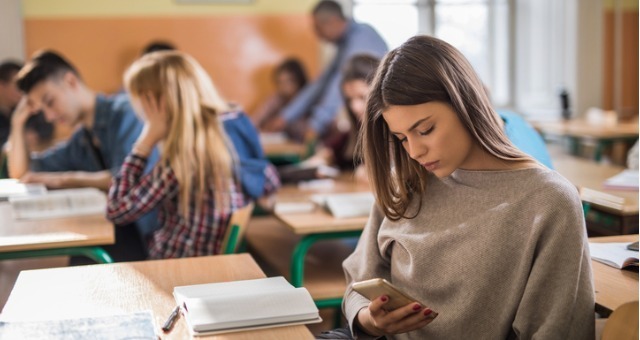Cell phones can have a few pros that make it beneficial for students. It’s helpful for having it in class in the event that an emergency happens, it provides a direct line of communication and can be helpful to use for educational purposes such as ebooks, having educational apps and using it to search up online information. However, since the early 2010s when cell phones began to rise, it’s had more of a negative impact on students rather than being used for professional purposes.
When phones are used in class for their intended purpose it serves as a direct communication, but having a phone in plain sight serves as a distraction because it shifts students’ focus away from class lessons and directs their attention to waiting for notifications, checking messages and trying to multitask.
According to ABC News, “Around the country, educators say students routinely send Snapchat messages in class, listen to music and shop online, among countless other examples of how smartphones distract from teaching and learning.”
This reduces their ability to engage and participate in lessons to retain knowledge. Cell phone usage during lessons can cause increased anxiety which is mainly due to FOMO, the fear of missing out, and having the urgency to check what’s new or what students miss out on. This reduces concentration away from learning. It’s become such an issue that many school districts have cell phone policies.
“I think cell phone policies are important because they teach students to stay focused in the classroom,” English teacher Jennifer Duguid said. “It helps to model managing cell phone behavior because it can get out of control and be addictive.”
With the rising popularity of cell phones, many school districts and U.S. states see that the effects they bring into the classroom don’t create a positive learning space for students. Many students believe these policies are set to restrict communication. They’re not meant to deny emergency contact though. These policies are in effect to encourage less digital distraction and have more focus on their learning so that they are academically successful.
While cell phones are a great communication device to have in class, using them for less educational purposes causes distractions, which often leads to less concentration on schoolwork and more focus on the content of the device. It’s important to limit distractions by having them out of sight where students won’t be tempted to use them unless it’s an emergency.

